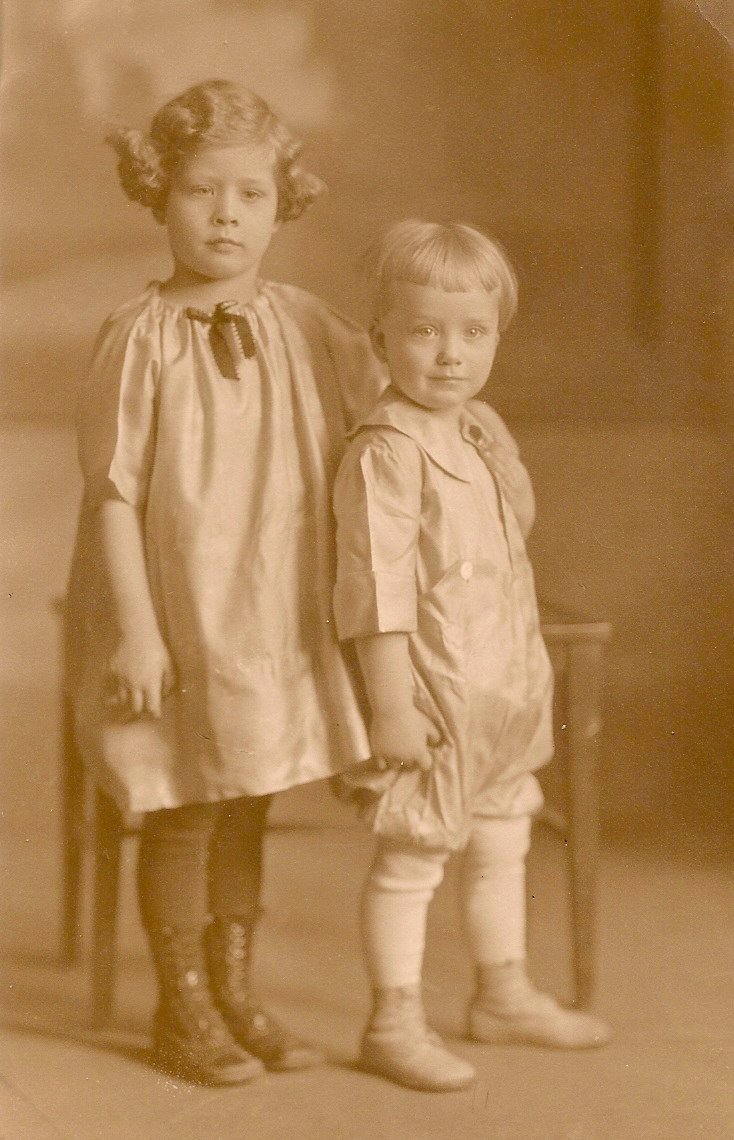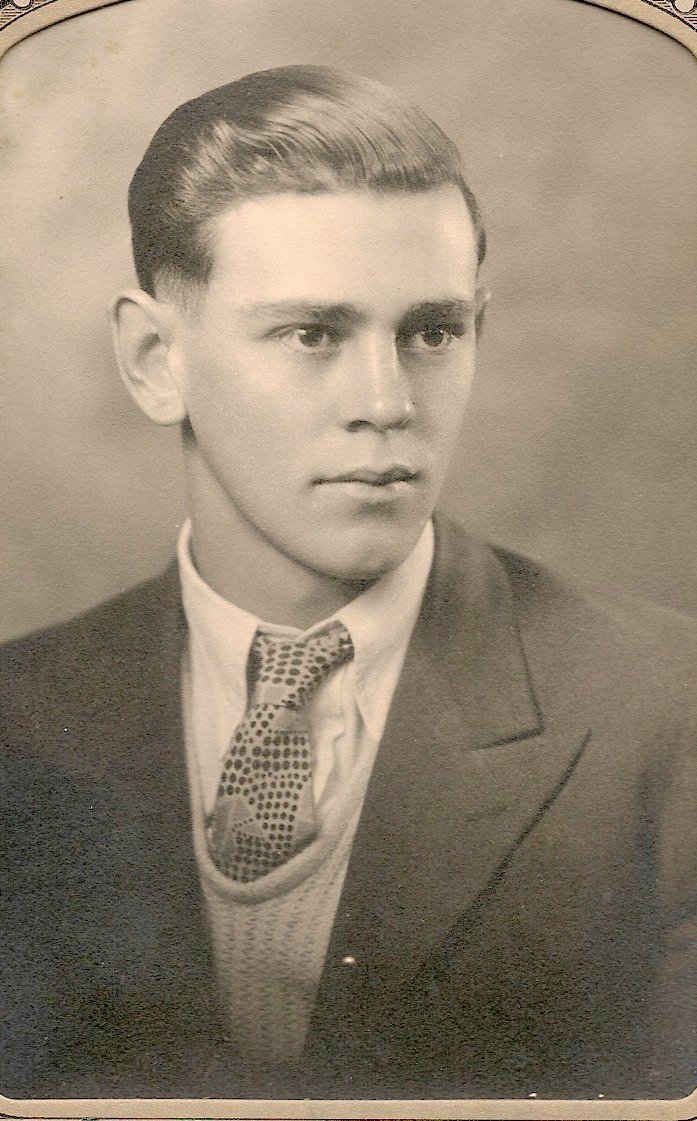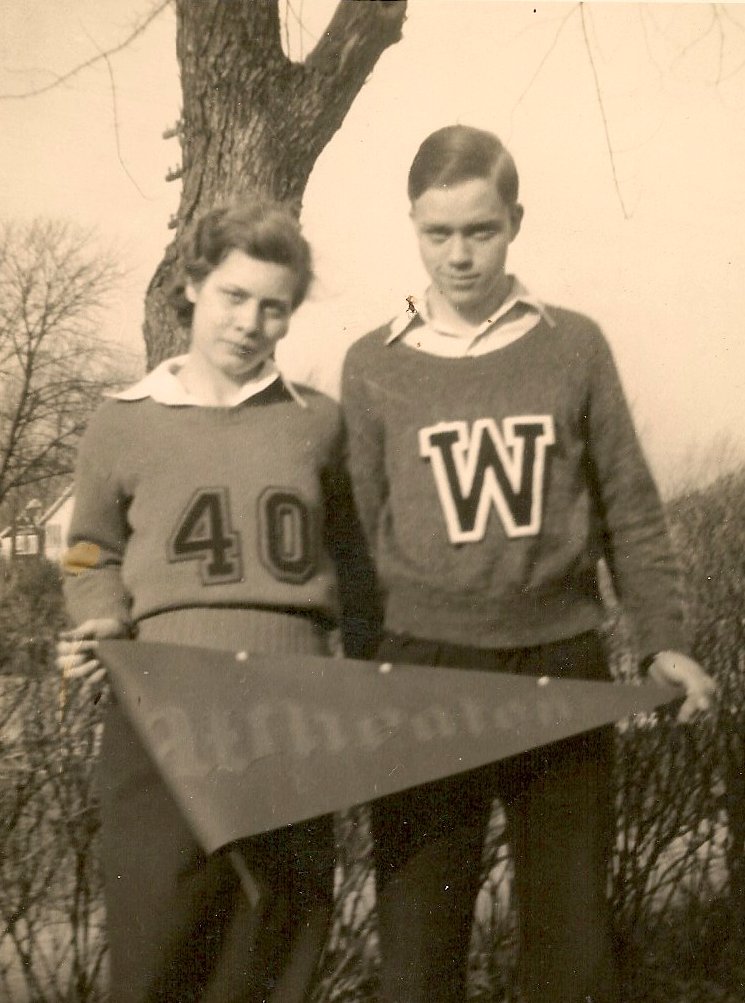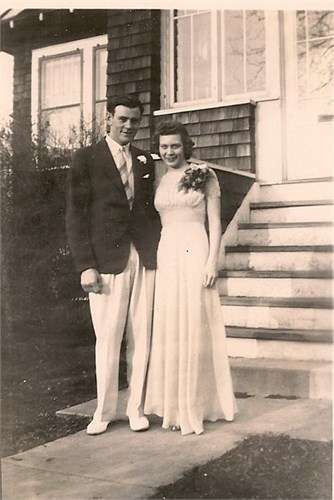Matrilineal Monday: my grandparents, Victoria Emma Prinzing and Harry Forrest Buerer
/When I discuss family history with others, I find most people, whether it be distance, family relationships, or other factors, know about one side more than the other. I probably saw my maternal grandparents less than 10 times in my life. They lived in California, and we lived in Pennsylvania. We didn't talk much on the phone, as long distance was expensive during my childhood. But I did maintain a kind of "pen pal" relationship with my grandmother, and I got to know her better that way.
I already talked a little about my maternal grandfather, Harry Buerer. But I haven't touched much on my grandmother, Victoria Prinzing.
With all due respect....my grandmother was kind of a pain in the butt.
She definitely had an opinion on the "right" way to do things and the "wrong" way to do things. When she and I corresponded during my girlhood, she wrote me back at one point and told me my letters to her needed to be at least 10 sentences long. No hair hanging in your face, and no saying "Geez" (because it sounded too much like Jesus.) And god help you...GOD HELP YOU...if you you picked up your dessert fork and began before she did. She'd call you out at a holiday dinner in such a way that made you want to shrink under the table.
And while I struggle to find information on Hannah and my paternal side, I'm not at a loss for research on the maternal. My grandmother documented every single sneeze. She kept diaries, letters, and family trees that would make any family historian jump up and down with glee. And through these I can begin to understand (or at least attempt to know) the human being my grandmother was.
My cousin asked my grandparents for their family histories when he was in high school. My grandfather promptly wrote him back a one page story of his life as a farm boy in Modesto, California, picking and drying apricots and peaches most of his young life (except for a year when he battled typhoid fever.) My grandmother wrote three typed pages single-spaced about her upbringing and adulthood.
Born in Chicago on January 11, 1918, my grandmother's birth kept my great grandfather from the draft into World War I. (People joked my great grandparents should have named her "weatherstrip" because it kept him out of the draft.) Her parents bought a house in Elmhurst, a suburb of Chicago, in 1922, before Elmhurst even had paved roads. She graduated fourth in a class of 250 from York Community High School and went on to study English Literature at Wheaton College, graduating in 1940.
Vickie came from a very devout Christian family. Her Aunt Viola Elsie Anderson and Uncle Anton Christianus Anderson, served as missionaries in the Belgian Congo. My great great grandfather, Fred Prinzing, acted as the secretary of the Congo Gospel Mission. Vickie grew up typing letters and stuffing envelopes for the Mission and soon found a desire for her own venture to Africa.
My grandparents met at Wheaton, and Harry also expressed a desire to go to Africa. (My grandmother describes my grandfather's relations as "a nominally Christian family.") My grandfather proposed, and the Congo Gospel Mission accepted them before they even graduated. But the mission board recommended they wait a year after being married to go overseas.
And wait they did. World War II, a trip to Montanta, children, and other factors halted their plans. But eventually, their quest for Africa happened. And all is told in my grandmother's diaries.
To be continued....











